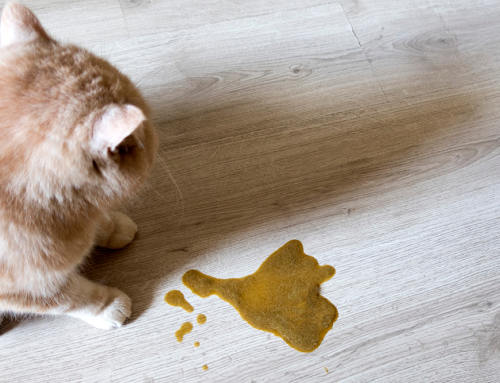Understanding Chronic Pain in Senior Pets at Wellness Animal Hospital
Chronic pain is a common but often overlooked issue in senior pets, causing discomfort and reducing their quality of life. At Wellness Animal Hospital in Lakewood Ranch, Florida, we are committed to recognizing and managing pain in aging pets with compassion and expertise.
Recognizing the Signs of Chronic Pain in Senior Pets
Common Symptoms of Chronic Pain
As pets age, they may begin to show subtle or more evident signs of chronic pain. Some of the most common indicators include:
- Decreased activity levels
- Limping or stiffness, especially after rest
- Reluctance to jump, climb stairs, or play
- Increased irritability or behavioral changes
- Excessive licking or chewing at painful areas
Early recognition of these symptoms is crucial for managing your pet’s comfort and overall health.
What’s Wrong? Common Pet Pain Signs
FAQs: Recognizing and Understanding Chronic Pain in Pets
Q: How can I distinguish between normal aging and signs of chronic pain?
A: While some slowing down is normal with age, chronic pain often causes specific behavioral changes such as increased irritability, reluctance to move, difficulty standing, or increased vocalization. If you’re unsure, a veterinary evaluation can help determine if your pet is in pain.
Common Causes of Chronic Pain in Aging Pets
Aging pets can suffer from various medical conditions that contribute to chronic pain. The most prevalent include:
- Arthritis and degenerative joint disease – These conditions cause stiffness, swelling, and discomfort in the joints.
- Dental disease – Pain from infected teeth or gum disease can make eating difficult.
- Cancer-related pain – Some cancers can cause inflammation, pressure, or nerve pain.
- Neurological conditions – Disorders such as intervertebral disc disease can lead to chronic pain and mobility issues.
Arthritis and Degenerative Joint Disease in Cats – iCatCare
Disease Progression and Consequences
Without appropriate treatment, chronic pain can lead to serious complications, including:
- Muscle atrophy due to decreased activity
- Reduced mobility and joint stiffness
- Secondary health issues, such as obesity, resulting from decreased exercise
- Behavioral changes, including anxiety, aggression, or depression
Diagnosing Chronic Pain in Pets at Wellness Animal Hospital
How We Identify Chronic Pain
At Wellness Animal Hospital, we take a comprehensive approach to diagnosing chronic pain, ensuring tailored interventions to enhance your pet’s comfort. Our diagnostic methods include:
- Physical examinations – Assessing joint function, gait, and pain response
- Advanced imaging – X-rays, MRIs, and CT scans help evaluate joint health and identify abnormalities
- Blood tests – Checking for underlying conditions such as infections or organ dysfunction
Regular veterinary check-ups are crucial in detecting pain early and preventing further deterioration.
When Chronic Pain Becomes an Emergency
If your pet suddenly exhibits severe pain, an inability to move, or significant behavioral changes, such as aggression or refusing to eat, seek immediate veterinary care.
Engaging with Your Vet: What to Expect and What Questions to Ask
Preparing for Your Visit
To make the most of your veterinary appointment, follow these steps:
- Observe and Note Symptoms: Keep a daily log of your pet’s mobility, appetite, and behavior.
- List Questions: Prepare questions about potential diagnoses, treatment options, and expected outcomes.
- Gather Medical Records: Bring previous test results or treatment history.
- Plan Transportation: Ensure your pet is comfortable during the trip, especially if they have mobility challenges.
Treatment Options for Chronic Pain in Senior Pets
Non-Medicinal Interventions
Proper weight management and gentle exercise play critical roles in reducing strain on joints. Other effective home adjustments include:
- Providing orthopedic pet beds to relieve pressure on joints
- Installing ramps to prevent the need for jumping
- Using non-slip rugs or mats to improve traction on slippery floors
Rehabilitative Therapies
Physical therapy and alternative treatments can provide significant relief. These may include:
- Hydrotherapy (underwater treadmill therapy) – Supports mobility with reduced weight-bearing stress
- Acupuncture – Helps manage pain by stimulating nerve pathways and reducing inflammation
- Massage therapy and stretching exercises – Improves circulation and joint flexibility
Role of Rehabilitation in Arthritis – Canine Arthritis
Medicinal Pain Management
Veterinarians may prescribe medications, including:
- Non-Steroidal Anti-Inflammatory Drugs (NSAIDs) – Reduce inflammation and pain
- Opioids – Used for more severe pain cases
- Joint supplements (glucosamine, chondroitin, omega-3 fatty acids) – Support joint health and function
Because long-term medication use may affect kidney and liver function, regular bloodwork monitoring is essential.
Advanced Medical Treatments
Innovative therapies such as laser therapy can effectively reduce pain and inflammation. Laser therapy works by increasing circulation and promoting cellular repair, providing a non-invasive treatment option for pets with chronic pain.
Laser Therapy for Pain and Arthritis in Dogs – AKC

Integrative Approaches to Managing Chronic Pain
Combining traditional and alternative treatments can provide the best outcomes. A personalized treatment plan may include:
- Medications and supplements
- Physical therapy and rehabilitation
- Home environment modifications
- Nutritional adjustments
Supporting Your Senior Pet at Home
Daily Care Strategies for Pets with Chronic Pain
Creating a comfortable living environment can make a significant difference. Consider:
- Elevated food and water bowls to reduce strain on joints
- Soft, padded bedding to provide extra support
- Gentle daily exercise to maintain mobility without excessive strain
Nutritional Support and Supplements
A balanced diet rich in anti-inflammatory ingredients can help alleviate chronic pain symptoms. Some beneficial dietary additions include:
- Omega-3 fatty acids – Help reduce inflammation
- Glucosamine and chondroitin – Support cartilage and joint health
- Antioxidants (Vitamin E, C) – Promote overall well-being
When to Contact Your Vet at Wellness Animal Hospital
Monitoring Your Pet’s Condition and Knowing When to Seek Help
Be vigilant for signs that your pet’s pain is worsening, including:
- Sudden changes in mobility or energy levels
- Increased aggression, restlessness, or vocalization
- Loss of appetite or significant weight loss
If you notice any of these symptoms, contact us for an evaluation.
Contact Wellness Animal Hospital
The Importance of Regular Check-ups for Senior Pets
Ongoing veterinary care is essential for long-term pain management. Regular check-ups allow us to:
- Adjust pain management strategies as needed
- Monitor medication effectiveness and safety
- Provide guidance on improving your pet’s quality of life
At Wellness Animal Hospital, we understand the challenges of managing chronic pain in senior pets. Our goal is to provide comprehensive, compassionate care that enhances your pet’s well-being and supports you in making informed decisions about their health.
If you suspect your pet is experiencing chronic pain, don’t wait—schedule an appointment today to help them live a more comfortable and active life.







Leave A Comment